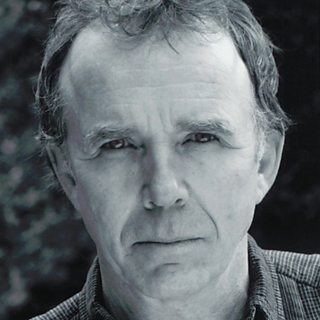The Boy with the Topknot is repeated on BBC Two on Saturday 18th August at 9.45pm and on BBC iPlayer as part of the Big British Asian Summer on the BBC. It is an an adaptation of Sathnam Sanghera's memoir of family, love, life, career and the discovery of his parents' secret battle with his father's and sister's mental illness. The book was adapted by Mick Ford for the screen. We spoke to both writers.
Sathnam Sanghera
What first motivated you to write your book The Boy with the Topknot?
Sathnam Sanghera: The whole thing was basically an extravagant quarter-life crisis. I can't actually remember what order things happened but I initially began it as a way of explaining to my family why I wasn’t going to marry a Sikh girl, as they desperately wanted me to - having spent my twenties lying to them, and to myself. But then, when I began to find out troubling things about my family's history, it became something else entirely.
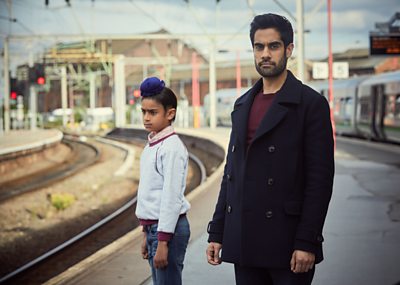
You have mentioned that family memoir is a very unusual genre for Indian writers, why do you think that is? What was the reaction like?
Sathnam Sanghera: Yes, there are very few Indian family memoirs. As a people we like to put our best face forward: anything difficult or dark like mental illness or emotional confusion is kept hidden away. You can see this desire to focus on the positive and upbeat in Bollywood. The reaction has been 95% positive. It was, in many ways, the perfect publishing experience. The whole thing began when, after a particularly painful break-up, I realised I had to integrate my two lives – the one in Wolverhampton, where I pretended I intended to marry someone of the same background as me, and the other in London, where I dated freely. It all worked out: my family have met girlfriends I have had since and would be delighted, I think, if I announced I was marrying a banana.
I wanted to write about our experience of severe mental illness, but without alienating anyone in my immediate family, and that worked out, too: my elder sister, who was diagnosed with schizophrenia in her teens, asked for a chapter to be deleted, which I did, but has now read the book four times. Schizophrenia is such a difficult condition that sufferers can often feel shunned by society and their families. To have your story told can be a powerful, validating thing. Meanwhile, the public reaction has been a dream, with thousands of letters and emails I’ve had from people saying it made them understand their family better, and even get treatment for mentally ill relatives; from students studying it at school and university; and, most satisfyingly, from psychiatrists, who have said it has helped them understand the people they treat.

Did you ever think your book would be adapted for screen? When did you find out this was happening?
SS: It was optioned quite early on by a different company... but then we had a family bereavement and I felt I didn't want to put my family or myself through it. The new producers came along at a better stage, when time had passed and we all felt more resilient. It was still a surprise when it got green lit though - nothing ever actually seems to get made in film or TV. People just like to have lots of meetings.
Does it feel like the right time to tell this story on TV considering it features both racial and mental health issues?
SS: Yes. If anything, I feel that many stories like this should have already been told from a cultural perspective - how many versions of Pride and Prejudice do we need? But a dramatic manifestation of schizophrenia is more essential and even rarer... that was the main reason to get it made. I hope people learn that schizophrenia is not a death sentence, that it is an awful illness and it can wreck your life but people do recover and you can be a good parent, a good sibling, you can work. It doesn’t need to be the end of everything.
You’ve said in interviews that Sikh Punjabi culture, “is not very ‘talky’ and tends to be secretive. Now your family’s story is not only a book but also a TV drama – how did they react to that news?
SS: This is the question family memoirists get the most. Implicit in the enquiry is the assumption that there is such a thing as a unified and consistent reaction, when the fact is, every member of the family has felt differently about it at different times. Also, given it essentially deals with the worst things that have ever happened to me, I have found my feelings about it have varied wildly too. Indeed, I think we have as a family, between us, and over the decade between writing and broadcast, responded in almost every possible way. With the book one of my sisters got as far as page 40 and gave up, she said, because I “used too many big words”, providing an important and unexpected lesson for a writer: sometimes people who don’t read books just don’t give a toss. Now it is only telly though, she is suddenly intrigued. It's complicated - but they have all seen it and given their blessing. I couldn't have done it without their support.
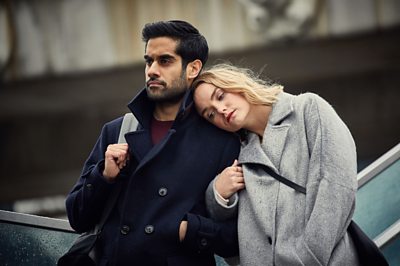
Have you ever written scripts yourself? Were you tempted to adapt the book for screen?
SS: No. I wouldn't mind giving it a shot soon, but I didn't want to spend a single more minute dwelling on the painful material. I also didn't want to be the reason why it didn't get made.
How does it feel to hand it over to someone else? How much were you involved in the development of the script?
SS: I read the various versions when I had to and gave detailed notes - I thought it was a miracle of concision and warmth and empathy, but would go to bed for a day afterwards. So bloody painful. Even now, it kills me to watch it.
Is the drama written in both English and Punjabi?
SS: Yes - and I'm glad it is.. because this is how my family works. Many of my nephews and nieces don't speak Punjabi, my mum understands English but doesn't speak it fluently, and yet they somehow communicate. I'm not sure I really understand how it works!
Have you seen the finished drama and are you please with the result? What do you hope people take away from it?
SS: I'm thrilled. Lynsey Miller and Mick Ford have done an amazing job - many details have been changed, and it is very different from the book, but that was how it FELT to be there and go through it. I hope people learn something about schizophrenia, about how all families are ultimately the same, and about why it is important to talk to your parents and siblings, even though it is agonising. They may well turn out to be the most amazing people you will ever meet
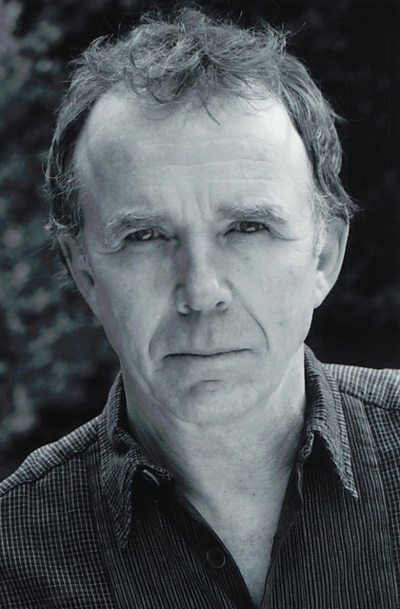
Mick Ford
How did you get involved in adapting The Boy with the Topknot for BBC Two? Were you already aware of the book?
Mick Ford: No - the first I knew of Sathnam's book was when Nisha Parti, the producer, and Kudos asked if I’d like to read it - which I did - and loved it - it’s a fantastic read - it’s funny, it’s moving, it’s angry, it's investigative, it’s revelatory - truly one of the most rewarding books I’ve ever come across - because as well as letting me into a world I knew nothing about, it was also, somehow, relationship-wise, completely familiar and recognisable - quite a bizarre experience - anyway, I really wanted a crack at adapting it - and, luckily, they gave me the job.
The Boy with the Topknot depicts a particular world at a particular time, did you have to do a lot of research or consult many people?
MF: I didn’t need to do any research: I had the book; Sathnam’s memoir - and I was re-telling his story, from his point of view - so I didn’t want any other input - I wanted it to remain as pure as possible - and I knew (if we got that far) that Sathnam would eventually read the script, react, give notes and voice any objections - which, when the time came, he did in spectacular detail!
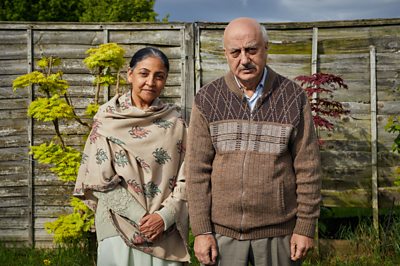
How does working on adaptations differ from creating your own original work? What are the biggest challenges of adapting someone else's work?
MF: An adaptation is almost the exact opposite of creating an original piece yourself. With an adaptation you start off with a ready-made narrative and characters. The skill is in deciding how to re-tell that story - in this case, within a one-off 90 minute film - which is hard when the source material is 320 pages long - you have to somehow distill it - and, in this case, tame it because Sathnam’s memoir spins off in all directions; its time frame darts around; it veers off to explore historical events in detail - it looks at past generations of the family in India - it’s a huge book in that respect - a wealth of wonderful detail - and we had 90 minutes.
So: it’s deciding what to retain, what to leave out, and what to make more concise or change - for example, in the book, Sathnam has lots of girlfriends; none of whom ever get to meet his family. I decided he should have one girlfriend, Laura, which I hoped would solidify the notion that the Sathnam character really was living two lives.
One of my main concerns throughout was the fact that the characters I was putting into the script were real people, alive and living in Wolverhampton today. Yes, Sathnam had already written about them, the book was published and out there - but for anyone to access their story they have to read the book, they have to invest their time in it. I was very aware that a TV drama would put their lives on show to be casually viewed - so I wanted to do their lives justice - and the fact that, I understand, Sathnam and his family are happy with the film makes me very relieved.
You are also well known as an actor, at what point did you begin writing too - was it as a result of acting or had you always written side by side with acting? Do you find the two disciplines complement each other?
MF: I started writing when I was a student - and was a musical director before I took up acting - so my working life has had many different phases - all of which, I think, have helped me understand how dramas work. Certainly being an actor helps when it comes to empathising with the characters you create - perhaps it also helps with the dialogue; though that’s the last part of the jigsaw - it’s the story that unlocks everything and requires the most work.
Oddly, I can’t combine acting and writing - they both occupy my head too much and get in the way of each other.
What was the process for writing the script in English and Punjabi?
MF: I learnt Punjabi - no - I simply wrote “in Punjabi” before the lines in question - and, later on, they were translated. The amount of Punjabi we’d have was always a matter of debate - we didn’t want 70% of the film to be in subtitles - on the other hand Punjabi is spoken in the home - and I think Lynsey Miller, the director, has got the balance spot on.
What advice would you pass on to someone starting out now on a screenwriting career? Has anyone shared any advice with you that you've found particularly useful?
MF: One way or another, whatever the genre, write about what you know - and learn to collaborate. If you can’t, write novels.
On Topknot we’ve had a wonderful experience - Nisha and Lynsey have made it feel like everyone’s been pulling together to make the same programme - and there it is - whatever anyone else thinks - what’s been produced is incredibly close to what we had in mind seven years ago when we started out on this project. That’s a rare thing. That’s collaboration.
The Boy with the Topknot is on BBC Two on Saturday 18th August at 9.45pm and on BBC iPlayer

